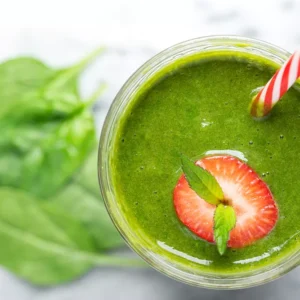200 millions. This is the number of people affected by age-related macular degeneration (AMD) worldwide. This chronic disease of the central area of the retina, namely the macula, is the leading cause of visual disability in those over 50, as indicated by Inserm. There are two types of AMD: dry AMD and wet AMD. Currently, only the so-called “wet” form of the disease can be treated and there is no treatment for dry AMD.
American, German, Australian and British researchers carried out a study aimed at improving the management of this disease. They reveal that stimulating a specific protein could help prevent AMD. They present this potential new approach in the revue Science Translational Medicine.
Increasing a specific protein could help fight AMD
Researchers point out that the progression of AMD is associated with chronic inflammation which is itself linked to aging. To find ways to fight this disease, they looked at a very specific protein, called IRAK-M. The latter is essential for the protection of the retinal pigment epithelium (RPE), the outermost cellular layer of the retina, which helps maintain a retina healthy.
In this work, scientists reveal that chronic inflammation linked to aging is associated with the reduction of this protein. To find out, they analyzed human retinal samples and mouse models of retinal degeneration. They thus observed that the IRAK-M protein present in the retinal pigment epithelium decreased with age.
The aim of this study was therefore to find out if increasing the IRAK-M protein could help fight retinal degeneration. Result: this “could attenuate outer retinal degeneration in these mouse models, suggesting a potential therapeutic strategy for AMD”we can read in the study.
— University of Bristol (@BristolUni) June 5, 2024
AMD: an approach that could help develop treatments
In a statement, Andrew Dick, co-author of the study, professor of ophthalmology at Bristol Medical School at the University of Bristol and director of the UCL Institute of Ophthalmology, says this approach could protect “against the effects of aging and oxidative stress” and reduce retinal degeneration.
The researchers add that this discovery could help to “develop” and to “improve” current treatments for AMD. They thus specify that they want to participate in the development of therapies through a company derived from the University of Bristol, Cirrus Therapeutics, which develops treatments against eye diseases.
“Our new approach not only addresses the multiple pathways involved in the treatment of AMD, but also offers the most compelling and well-supported strategy available today.”comments Dr. Ying Kai Chan, co-author of the study, co-founder and CEO of Cirrus Therapeutics.
— Science Translational Medicine (@ScienceTM) June 5, 2024
Sources :
- Replenishing IRAK-M expression in retinal pigment epithelium attenuates outer retinal degeneration – Science Translational Medicine – 05/06/24
- Boosting key protein in eye cells could prevent age-related vision loss, finds international team – Université de Bristol – 05/06/24
- Age-related macular degeneration (AMD), a progressive loss of central vision – Inserm











